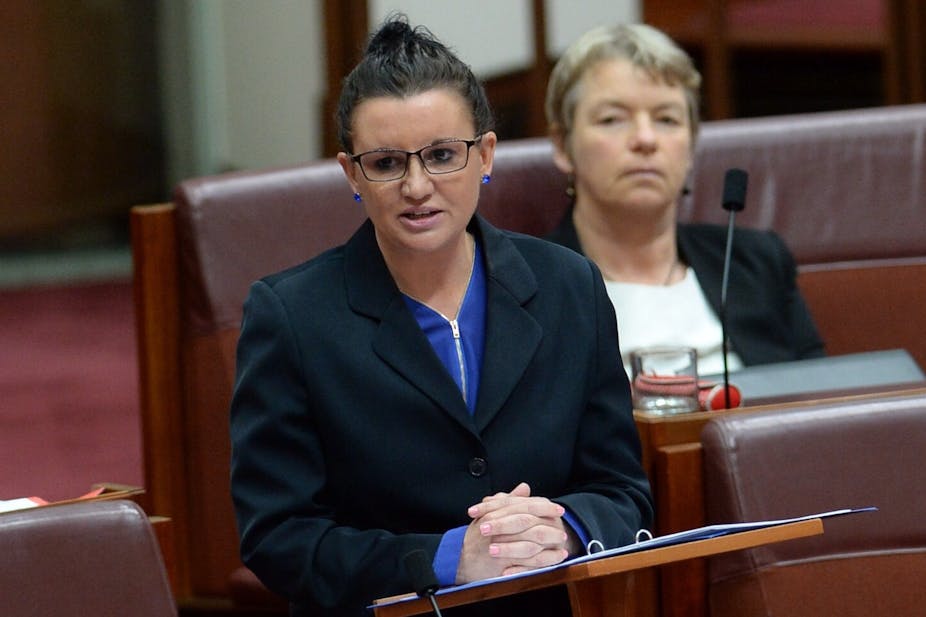Australia’s financial services industry has been thrown into turmoil by the spectacular implosion of the Palmer United Party (PUP) and an independent stand by its supposed ally, Motoring Enthusiast Ricky Muir.
Wednesday night’s disallowance, by a 32-30 vote, of the government’s regulations that unwound Labor’s Future of Financial Advice measures reinstates a range of protections for consumers.
But it also means many financial advice institutions don’t have systems in place to meet what they will now be supposed to do, and thus could be in breach of the law. They’d been confident these wouldn’t be needed, thanks to the government’s watering down of Labor’s phased-in measures.
So, the Australian Securities and Investments Commission (ASIC) has issued a statement saying it will adopt a “practical and measured approach to administering the law as it now stands” after the Senate’s action.
It will take into account that many financial service licensees “will now need to make systems changes … in particular areas, including fee disclosure statements and remuneration arrangements”. ASIC’s “facilitative approach” will operate until July 1 next year.
To complicate things even further, there could be yet another regime of changes if the government accepts a crossbench offer of discussions for a compromise.
Finance Minister Mathias Cormann had a major victory mid-year when, helped by Malcolm Turnbull, he did a deal with Clive Palmer to head off a Labor move to disallow the regulations. Now Cormann has been dramatically trumped by Labor senator Sam Dastyari and independent Nick Xenophon.
At a Wednesday morning news conference with Dastyari, PUP rebel Jacqui Lambie, Muir, the Greens’ Peter Whish-Wilson and independent John Madigan, Xenophon said they had formed a “coalition of common sense”.
Cormann had been out-manoeuvred. When late Tuesday he heard about the new disallowance move he tried desperately to get to Muir.
But Muir was off the air – at China Plate, a restaurant in the Canberra suburb of Kingston, dining with Dastyari, Xenophon and some staffers. The conversation wasn’t about the regulations – the deal was already in the bag. Cormann was not able to reach Muir until Wednesday morning.
With the numbers in hand, Cormann’s opponents were determined to act as quickly as possible. The sitting days left for disallowance ran out on November 27, but they were not going to allow the opportunity for any slippage.
Lambie’s row with Palmer and PUP had played to their cause and Muir, who used to work for a sawmill, was influenced by last week’s evidence to a Senate inquiry about how people lost their savings in the Timbercorp managed investment scheme, which involved the ANZ.
For Dastyari, former secretary of the NSW ALP, this is a big coup. Dastyari went to Tasmania to lobby Lambie, who said on Wednesday she was now voting “to fix an injustice that I helped create just a few months ago”. She said she wouldn’t allow the Liberal Party and its supporters “to wind back consumer protection at a time when the financial advice industry has been shown to act in a scandalous manner”.
The government is humiliated but won’t get much sympathy from the public.
In the name of cutting red tape and simplifying the rules for the financial services industry, it reduced consumer protections and delivered in particular to the banks.
The evidence of past bad behaviour by the banks and the victims it claimed has continued to mount, demonstrating the need for people to be protected.
Xenophon said the government’s regulations were “unambiguously bad for consumers”.
Reverting to the Labor law toughens the requirement for financial advisers to work in the client’s best interest; unequivocally bans all forms of conflicted remuneration; requires clients to “opt in” to their advisers every two years; and imposes an obligation on advisers to give clients annual fee-disclosure statements.
Xenophon has called on the government for talks to now work out sensible compromise measures. “The ball’s in the government’s court,” he said after the vote.
The FoFA fiasco is the first blowback for the government of the Lambie-Palmer rift.
Palmer and Lambie appear irreconcilable. He announced on Wednesday morning that PUP had sacked her as deputy PUP leader in the Senate and suspended her from party meetings. She accused him of trying to bully her. He called her a liar in a statement on Wednesday night, confirmed she hadn’t spoken to him for a month and said she was planning to set up an alternate political party.
But he also said that “Senator Lambie obviously believes in the Palmer United Party as she is still a member”, adding provocatively “we hope she gets the appropriate assistance to get back on track”.
The government has had its nightmares trying to deal with Palmer, unable to win PUP support for a number of key measures, including the deregulation of university fees and the Medicare co-payment. But it has also cut some deals with him including on its direct action plan, which was vital to give it a climate change policy after the repeal of the carbon tax.
With Lambie now effectively divorced from Palmer and also declaring she’ll vote against all government legislation because of her stand on military pay, and Muir showing he can go his own way, the Senate becomes even more unpredictable.
Listen to our Victorian election podcast, here.

